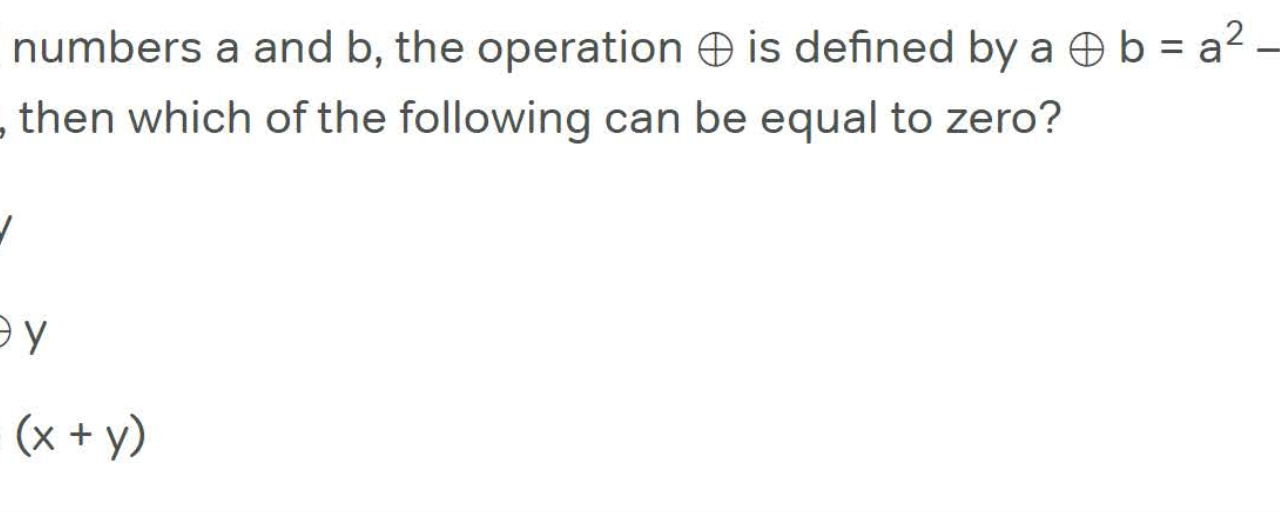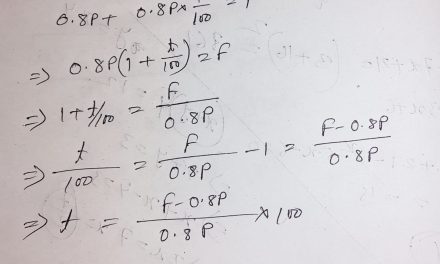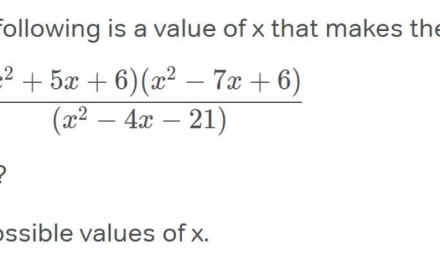For all numbers a and b, the operation ⊕ is defined by a ⊕ b = a ^ 2 – ab . If xy ≠ 0, then which of the following can be equal to zero?
I. x⊕y
II. (xy)⊕y
III. x⊕(x + y)
Let’s analyze each statement and see if it can be equal to zero:
I. x⊕y = x^2 – xy This can be zero. For example, if x = 2 and y = 2, then x⊕y = 2^2 – 2 * 2 = 4 – 4 = 0.
II. (xy)⊕y = (xy)^2 – (xy)y This can also be zero. Let’s simplify: (xy)^2 – (xy)y = x^2y^2 – x^2y^2 = 0
This becomes zero because any number multiplied by itself and then subtracted by itself will be zero.
III. x⊕(x + y) = x^2 – x(x+y) We can simplify this expression: x^2 – x(x+y) = x^2 – x^2 – xy = -xy
-xy cannot be zero because we are given that xy ≠ 0.
Therefore, only statements I and II can be equal to zero.






Recent Comments